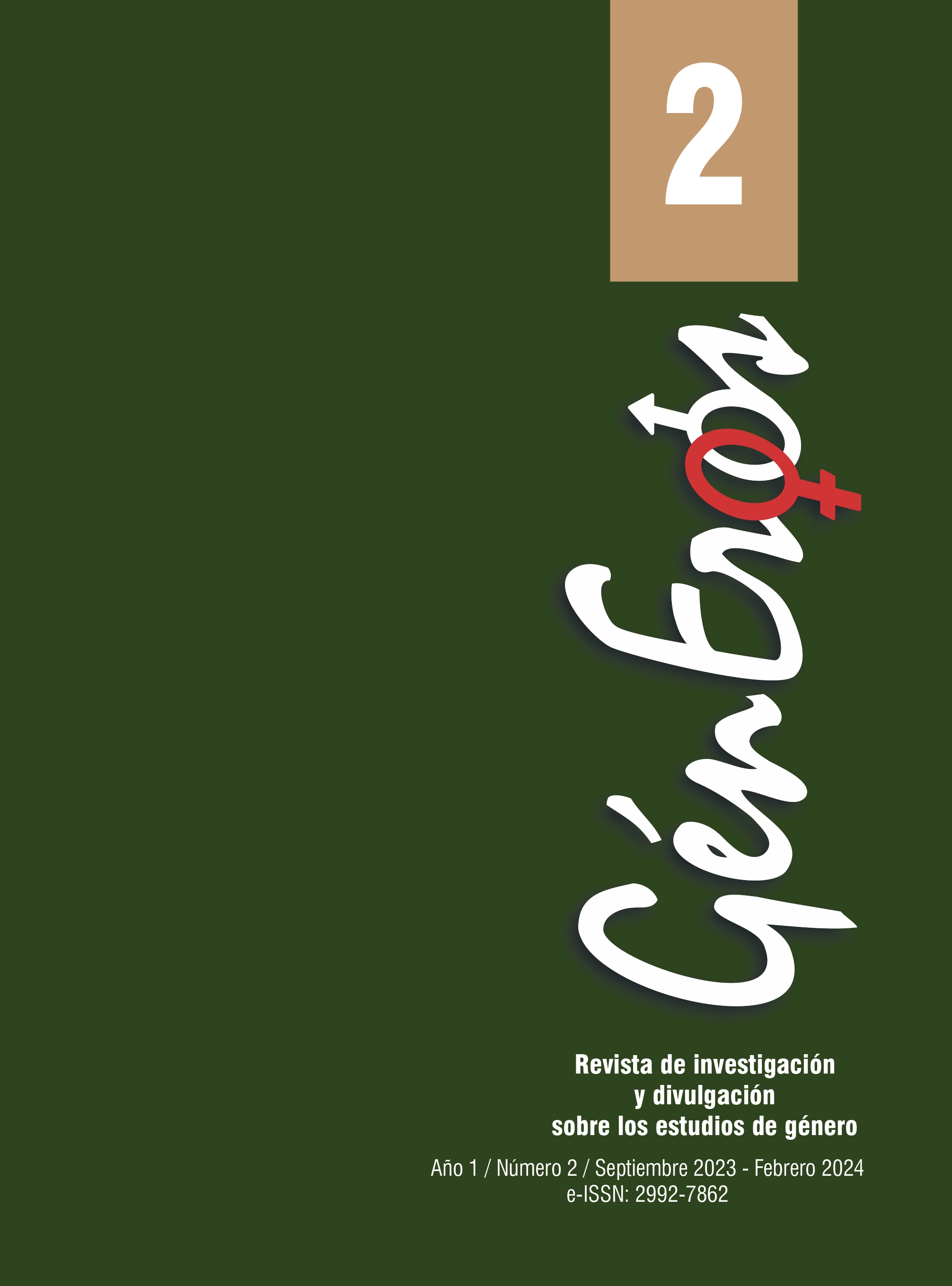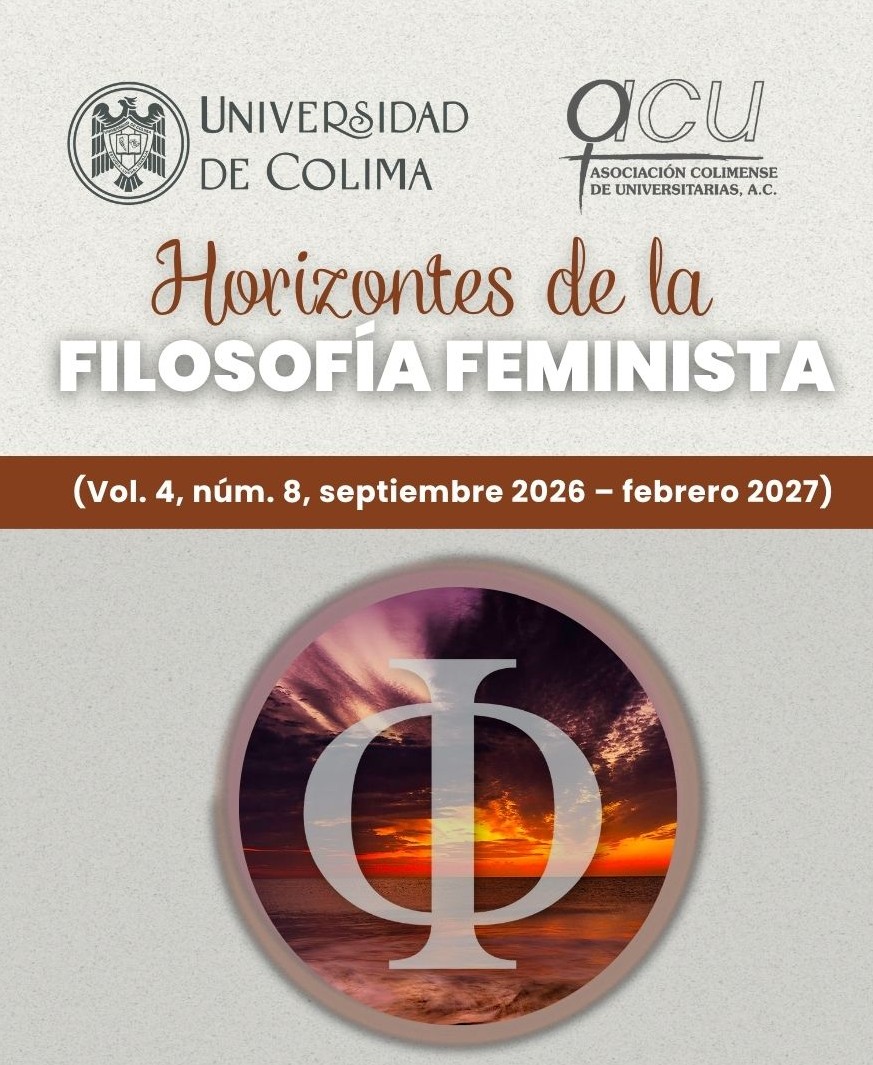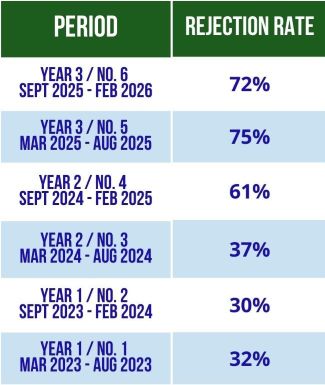Even if the branch bends, it returns to its place: Changes in masculinities of heterosexual strippers for men
DOI:
https://doi.org/10.53897/RevGenEr.2023.02.08Keywords:
masculinities, liquidity, homophobia, gender, stripperAbstract
This paper details some findings identified during postdoctoral research, which sought to identify changes in masculinities, as well as to recognize what allows such modifications to take place. This inquiry was carried out in bars where men dance and undress (strippers) before an audience made up of men of sexual and affective diversity (homosexuals and bisexuals). In it, the displacements identified in the expression and materialization of the stripper gender were studied and analyzed. At the same time, spaces were identified where masculinity is transformed, the reasons why it is possible and the conditions that favor them. During the research, some changes in the masculinity of these men were recognized. The changes are carried out during the time that they are developing their work, both for the needs of the service and for the express requests of the clients.
Downloads
Metrics
References
Addelston, J. (1999). Doing the Full Monty with Dirk and Jane: Using the Phallus to Validate Marginalized Masculinities, The Journal of Men´s Studies, 7(3): 337- 352. https://doi.org/10.3149/jms.0703.337
Agamben, G. (2011). ¿Qué es un dispositivo? Sociológica, 26 (73): 249-264. https://www.scielo.org.mx/pdf/soc/v26n73/v26n73a10.pdf [Consultado 26 septiembre 2022].
Barber, K. y Bridges, T. (2017). Marketing manhood in a “post-feminist” age. Contexts, 16(2): 38-43. https://doi.org/10.1177/153650421771425
Bauman, Z. (2017). Modernidad líquida. Fondo de Cultura Económica.
Balbuena, R. (2010). La construcción sociocultural de la homosexualidad. Enseñando a vivir en el anonimato, Culturales, 6(11): 63-82.
Berger, P. y Luckmann, T. (2008). La construcción social de la realidad. Amorrortu.
Bertaux, D. (1997). Los relatos de vida en el análisis social. En: J. Aceves (ed.), Historia oral. Instituto Mora.
Bird, S.R. (1996). Welcome to the Men’s Club: Homosociability and the Maintenance of Hegemonic Masculinity. Gender Society, 10(2): 120-132. https://doi.org/10.1177/089124396010002002
Bridges T. (2009). Gender Capital and Male Bodybuilders. Body and Society, 15(1): 83-107. https://doi.org/10.1177/1357034X08100148
Bridges T. (2011). Liquid Masculinities: Transformations in Gender and Politics Among Men. Tesis de doctorado, University of Virginia.
Bridges, T. y Pascoe, C.J. (2014). Hybrid Masculinities: New Directions in the Sociology of Men and Masculinities. Sociology Compass 8(3): 246-258. https://doi.org/10.1111/soc4.12134
Butler, J. (2001). El género en disputa. PUEG-UNAM.
Butler, J. (2005). Cuerpos que importan. El límite discursivos del sexo. Paidós.
Cohen, C. (1997). Punks, Bulldaggers, and Welfare Queens: The Radical Potential of Queer politics? GLQ, 3: 437-465. https://985queer.queergeektheory.org/wp-content/uploads/2013/04/Cohen-Punks-Bulldaggers-and-Welfare-Queens.pdf [Consultado 26 septiembre 2022].
Connell, R.W. (2003). Masculinidades. UNAM-PUEG.
Connell, R.W. y Messerschmidt, W. (2005). Hegemonic Masculinity. Rethinking the Concept. Gender & Society, 19(6): 829-859. https://doi.org/10.1177/0891243205278639
De la Calle, L. y Rubio, L. (2010). Clasemedieros. Nexos. https://www.nexos.com.mx/?p=13742 [Consultado 26septiembre 2022].
DeMarco, J. (2007). Power and Control in Gay Strip Clubs. Journal of Homosexuality, 53(1- 2): 111-127. https://doi.org/10.1300/J082v53n01_05
Diaz-Benítez, M.; Gadelha, K. y Rangel, E. (2021). Apresentação do Dossiê Nojo, humilhação e desprezo: Uma antropologia das emoções hostis e da hierarquia social. Anuário Antropológico, 46 (3): 9-29. https://doi.org/10.4000/aa.8898
Díaz, S.M. (2016). Corpografía del hambre. Cuerpos que resisten. Tesis de licenciatura, Universidad de la República de Uruguay. https://www.colibri.udelar.edu.uy/jspui/bitstream/20.500.12008/8472/1/Diaz%2c%20Sandra.pdf [Consultado 26 septiembre 2022].
El Colegio de México (s.f.). Diccionario del español de México (DEM) https://dem.colmex.mx/ [Consultado 26 septiembre 2022].
Eribon, D. (2004). Una moral de lo minoritario. Variaciones sobre un tema de Jean Genet. Anagrama.
Erickson, J. y Tewksbury, R. (2000). The Gentlemen in the Club: A Typology of Strip Club Patrons. Deviant Behavior: An Interdisciplinary Journal, 21: 271-293. https://doi.org/10.1080/016396200266261
Freitas, C. (2012). Trazendo a noite para o dia: Apontamentos sobre erotismo, striptease masculine, pedagogias de gênero e sexualidade. Tesis de doctorado, Universidade Federal do Rio Grande do Sul.
Hakim, C. (2015). Economies of Desire: Sexuality and the Sex Industry in the 21st Century. Economic Affairs, 35(3): 329-348. https://doi.org/10.1111/ecaf.12134
Hurley, A.H. (2007). Bitten and Spanked: The Male Revue as Liminal Setting. Tesis de maestría, University of North Carolina en Greensboro.
Jung, P.B. y Smith, R.F. (1993). Heterosexism: An Ethical Challenge. State University of New York Press.
Laguna, Oscar (2013). Vivir a contracorriente: Arreglos parentales de varones gay en la Ciudad de México. El librero de administración pública.
Melossi, D. (1992). El estado del control social: Un estudio sociológico de los conceptos de estado y control social de la conformación de la democracia. Siglo XXI.
Mitchell, G. (2011). Padrinhos gringos: Turismo sexual, parentesco queer e as familias do futuro. En: A. Piscitelli, G.A. De Oliveira y V.J.M. Nieto, Gênero, sexo, amor e dinheiro: Movilidades trasnacionais envolvendo o Brasil. UNICAMP/SAGU.
Muñiz, E. (2002). Cuerpo, representación y poder. México en los albores de la reconstrucción nacional, 1920-1934. Miguel Ángel Porrúa- UAM.
Núñez, G. (sf). Desconstruyendo la homofobia. Una lectura política del erotismo. http://www.dvvimss.org.mx/homofobia/DESCONSTRUYENDO_LA_HOMOFOBIA_guillermo_nunez.pdf [Consultado 26 septiembre 2022].
Núñez, G. (2011). ¿Qué es la diversidad sexual? Reflexiones desde la academia y el movimiento ciudadano. Ediciones Abya- Yala.
Núñez, G. (2013). Hombres sonorenses. Un estudio de género de tres generaciones. Universidad de Sonora Pearson.
Piqueiras, E. (2013). Commodified Risk: Masculinity and Male Sex Work in New Orleans. Tesis de maestría en Antropología de Estudios Urbanos.
Preciado, B. (2009). Género y performance: 3 episodios de un cybermanga feminista queer trans… Debate feminista, 40: 111-123. https://debatefeminista.cieg.unam.mx/index.php/debate_feminista/article/view/1442
Schifter, J. (1997). La casa de Lila. Prostitución masculina en América Latina. Instituto Latinoamericano de Prevención y Educación en Salud.
Turner, V. (2009). The Ritual Process. Structure and Anti-Structure. Adline Transaction.
Varela, N. (2008). Feminismo para principiantes. Ediciones B. https://kolectivoporoto.cl/wp-content/uploads/2015/11/Varela-Nuria-Feminismo-Para-Principiantes.pdf
Wittig, M. (2006). El pensamiento heterosexual y otros ensayos. Egales.
Published
How to Cite
Issue
Section
License

This work is licensed under a Creative Commons Attribution-NonCommercial-ShareAlike 4.0 International License.
GénEroos Magazine allows you to share, copy and redistribute the material in any medium or format; adapt, remix, transform and build upon the material, crediting the work appropriately and providing a link to the licence, indicating if changes have been made.












